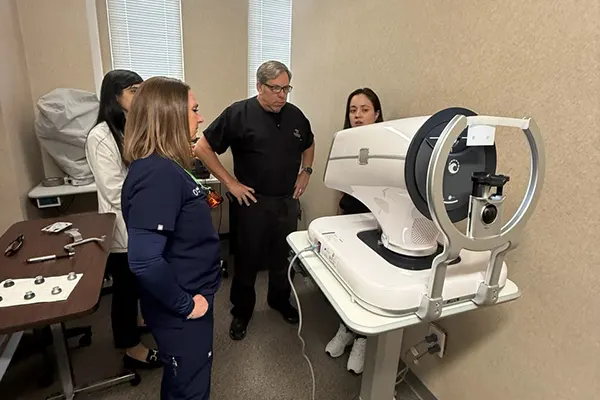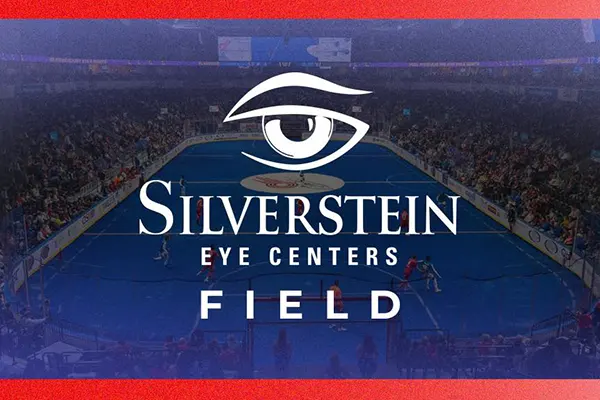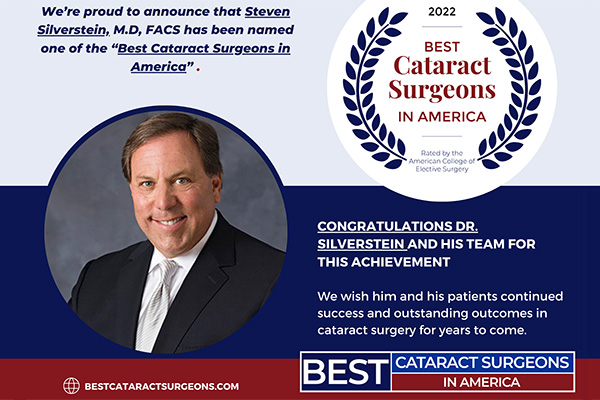LASIK FAQs
What is the price difference between traditional and Custom LASIK?
Does insurance cover refractive surgery?
Is traditional or Custom LASIK better for me?
Will I still need glasses after LASIK?
What if I need an enhancement, or retreatment?
Am I a good candidate for LASIK?
What will the initial appointment be like?
How long will the recovery process take?
How long is the LASIK procedure?
Does LASIK hurt?
When will I be able to see after the procedure?
Will I have 20/20 vision?
What are the primary benefits of LASIK over PRK?
What are the risks associated with LASIK?
Is LASIK approved by the FDA?
1. What is the Price Difference Between Traditional and Custom LASIK?
Custom LASIK procedures typically add between $500-1000 per eye to the price of traditional LASIK.
Back to Top
2. Does Insurance Cover Refractive Surgery?
Currently we offer LASIK, Custom LASIK, PRK, and Custom PRK. Most insurance plans do not cover refractive procedures.
Back to Top
3. Is Traditional or Custom LASIK Better for Me?
You will need to be tested, and depending on your prescription, LASIK or Custom LASIK will be recommended for you. By completing an initial evaluation, you and your surgeon will be able to discuss the right treatment option.
Back to Top
4. Will I Still Need Glasses After LASIK?
If you are at least 40 years of age, have presbyopia and wear reading glasses or have bifocals, you may still need to wear reading glasses after LASIK surgery. If you decide to have a monovision treatment you may be able to avoid reading glasses some or all of the time. Monovision refers to the surgical technique of correcting one eye to see at distance and the other eye to see up close.
Back to Top
5. What if I Need an Enhancement or Retreatment?
Less than 5% of patients will require enhancements after their initial LASIK surgery. Typically, you will know if you need an enhancement within the first six months after surgery.
Back to Top
6. Am I a Good Candidate for LASIK?
Would you like to wake up in the morning and see the clock without your glasses? How about going on vacation without having to worry about losing your glasses or contacts? Would not having to wear glasses increase your confidence, improve on-the-job performance, or help you have better participation in sports or fitness activities?
There are many reasons LASIK may be the answer for you. Though most people are good candidates, there are some conditions which would preclude one from being helped by LASIK. For instance, here are some LASIK facts: if you have a pre-existing eye disease that affects vision such as cataracts, advanced glaucoma, corneal diseases, or corneal thinning disorders, you would not be a good candidate. There are also temporary conditions such as pregnancy or vision instability which can make a person ineligible for LASIK. However, the best way to be sure whether or not you are a good candidate is to have a pre-operative LASIK screening with a qualified medical professional.
Back to Top
7. What Will the Initial Appointment Be Like?
During the initial appointment you will undergo a comprehensive eye exam where your eyes will be dilated. One of our doctors will go over the LASIK procedure and your treatment plan. At this time, you will have a chance to ask any questions you may have about your procedure. This appointment may last up to two hours.
Back to Top
8. How Long Will the Recovery Process Take?
The day of the procedure we ask our patients to go home and rest. Generally, most patients are functional by the next day, meaning that they can drive and go to work.
Back to Top
9. How Long is the LASIK Procedure?
You will be at our surgical center for two hours. Like any surgery, you will have your preparation, surgery, and recovery. The actual surgery process is done in less than a minute. You must have someone there to drive you home after your LASIK procedure.
Back to Top
10. Does LASIK Hurt?
Topical numbing eye drops are used during your procedure. Most patients report no discomfort sometimes a stinging sensation may occur but goes away quickly.
Back to Top
11. When Will I Be Able to See After the Procedure?
Patients will be blurry but can see right after the procedure. Typically by the next day, the patient’s vision will clear and they can see well. Most patients have functional vision by the next day. Full visual results are usually realized within one to four weeks.
Back to Top
12. Will I Have 20/20 Vision?
Your best-corrected vision and glasses or contacts is what can be achieved with LASIK. Not everyone can be corrected to 20/20 vision. Your doctor will go over with you what your best correctable vision will be after surgery.
Back to Top
13. What are the Primary Benefits of LASIK Over PRK?
The benefit of LASIK over PRK is that LASIK allows quicker healing time. PRK is great for patients that have thinner corneas, are involved in contact sports or are in the military.
Back to Top
14. What are the Risks Associated With LASIK?
Like any medical procedure, LASIK has risks involved. However, it does have a 99.9 success rate, making it one of the most successful procedures available.
Back to Top
15. Is LASIK Approved By the FDA?
The FDA does not approve the LASIK procedure, but they do approve the technology that is used by Silverstein Eye Centers. The LASIK procedure was, however, approved by NASA in 2007.
Back to Top


